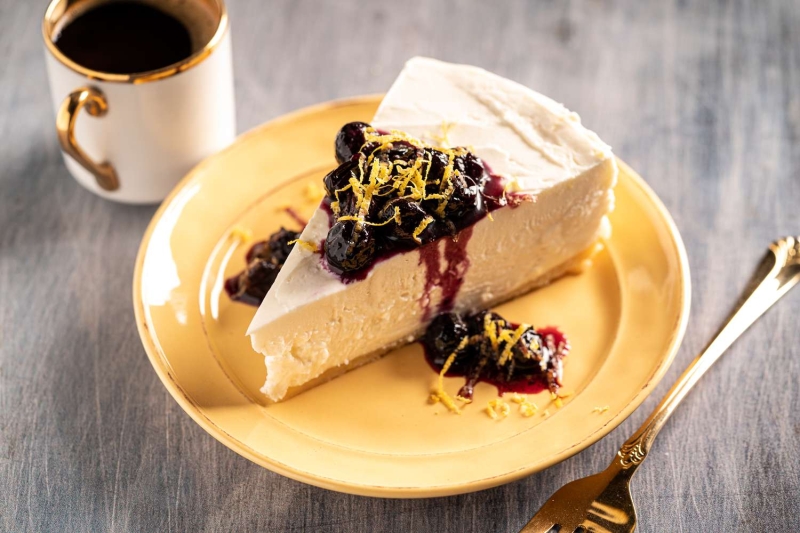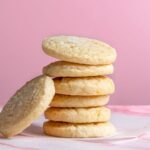Prep: 20 mins
Cook: 15 mins
Chill: 3 hrs
Total: 3 hrs 35 mins
Servings: 12 slices
Yield: 1 cheesecake
This no-bake keto cheesecake is a blank slate for dessert creativity. It can be prepared in advance and served chilled from the refrigerator, and each slice can then be topped with your favorite keto-friendly toppings. Here, a blueberry topping sweetened with a keto-friendly sugar substitute is spooned over each slice of cheesecake. Feel free to use other low-sugar fruits such as raspberries or blackberries as well.
No-bake cheesecakes firm up in the refrigerator after the ingredients are whipped together in a stand mixer. If your cheesecake is too soft or doesn’t firm up, make sure you are using the proper ratio of softened block-style cream cheese (not whipped) and heavy cream. No-bake cheesecake also needs to chill for several hours in the fridge before serving, so make it ahead and try chilling for longer if it hasn’t quite set up after a few hours.
Ingredients
For the Crust:
-
2 cups almond flour
-
4 tablespoons unsalted butter (or melted coconut oil)
-
1/4 cup keto-friendly granulated sugar substitute
-
1/4 teaspoon kosher salt
For the Filling:
-
4 (8-ounce) boxes cream cheese, softened
-
1 cup heavy whipping cream
-
1/2 cup keto-friendly granulated sugar substitute
-
2 tablespoons lemon juice
-
1 tablespoon lemon zest, plus more for garnish, optional
-
2 teaspoons vanilla extract
For the Berry Topping:
-
2 cups fresh berries
-
3 tablespoons water
-
3 tablespoons keto-friendly granulated sugar substitute
-
1 tablespoon lemon juice
-
1/4 teaspoon ground cinnamon
Steps to Make It
-
Gather the ingredients.
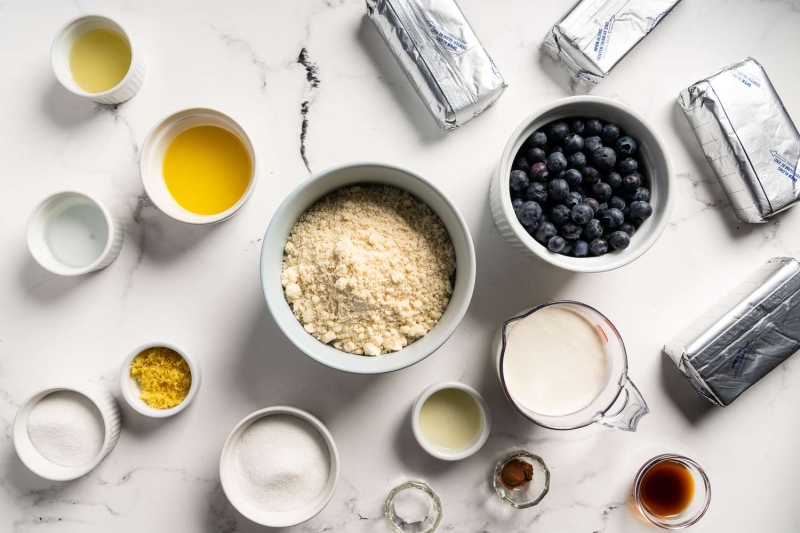
-
In a medium bowl, combine almond flour, melted butter, keto-friendly granulated sugar substitute, and salt. Stir until it forms a sandy consistency.
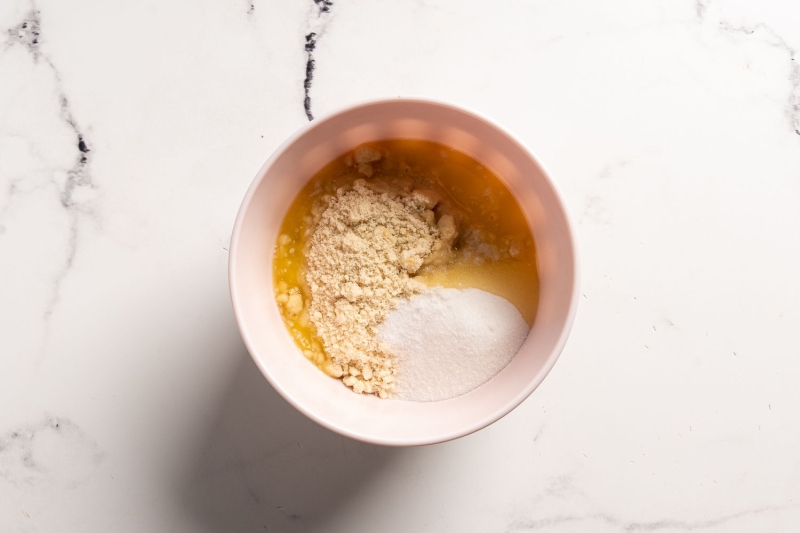
-
Press mixture into bottom of a 9-inch springform pan. Place in refrigerator to set while proceeding with next steps.
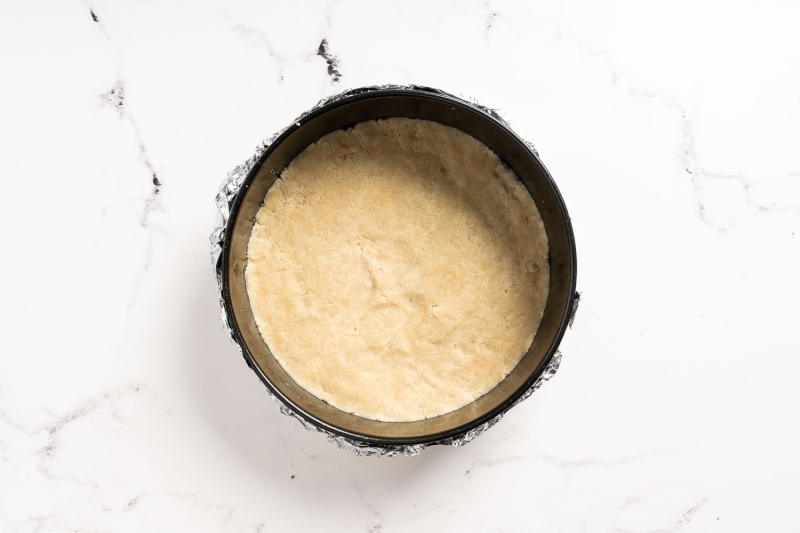
-
In large bowl of a stand mixer, combine cream cheese, heavy whipping cream, keto-friendly granulated sugar substitute, lemon juice, lemon zest, and vanilla extract. Whip for 5 minutes until fluffy.
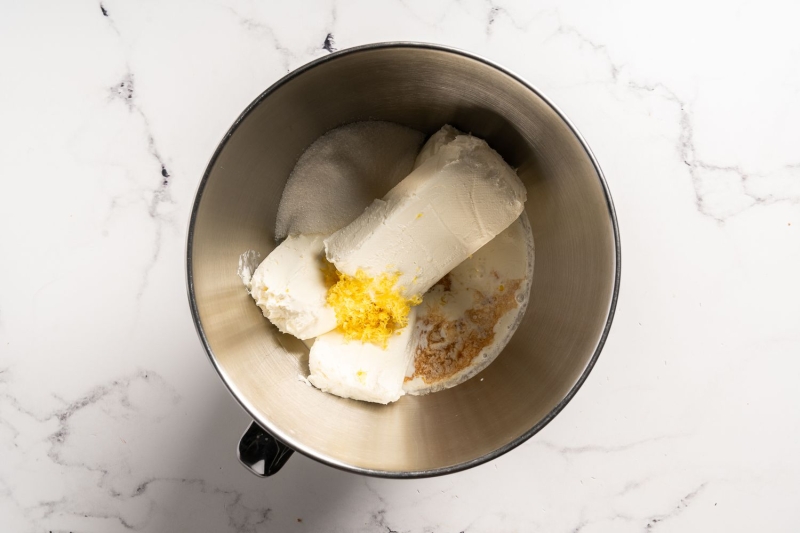
-
Pour filling over chilled crust, smoothing top with a spatula or soon. Cover and chill in refrigerator for at least 3 hours or overnight.
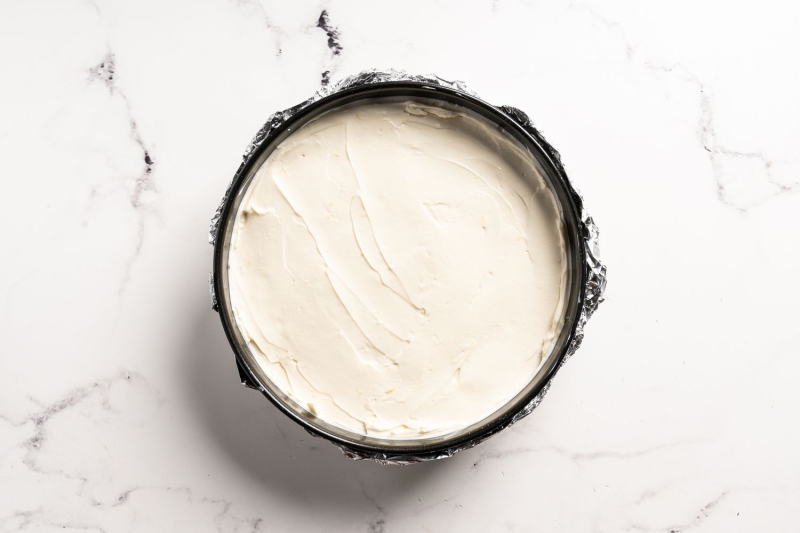
-
When ready to serve, prepare berry topping. In a medium pan over medium heat, combine berries, water, keto-friendly granulated sugar substitute, lemon juice, and cinnamon. Bring to a boil, then simmer, uncovered, until sauce has thickened. About 10 to 15 minutes. Cool before serving.
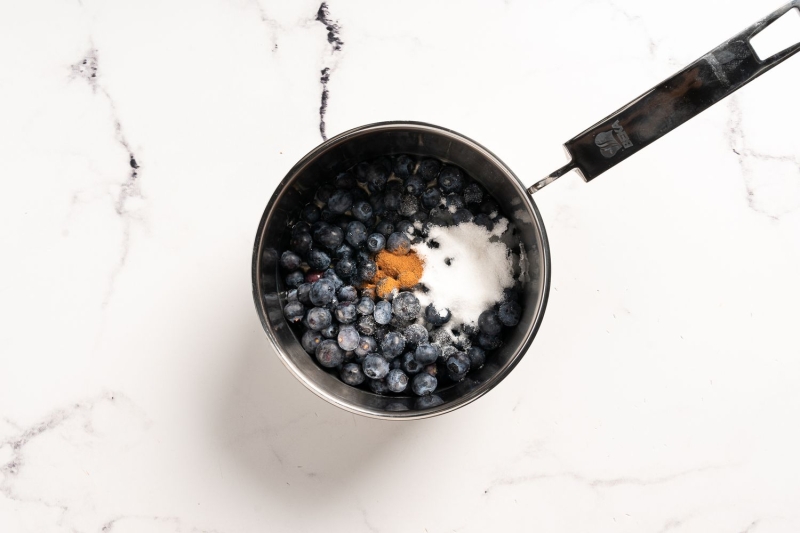
-
To serve, run a thin knife around edge to loosen crust from sides of pan. Release springform pan and remove sides. Top each slice with cooled berry topping. Garnish with additional lemon zest, if desired.
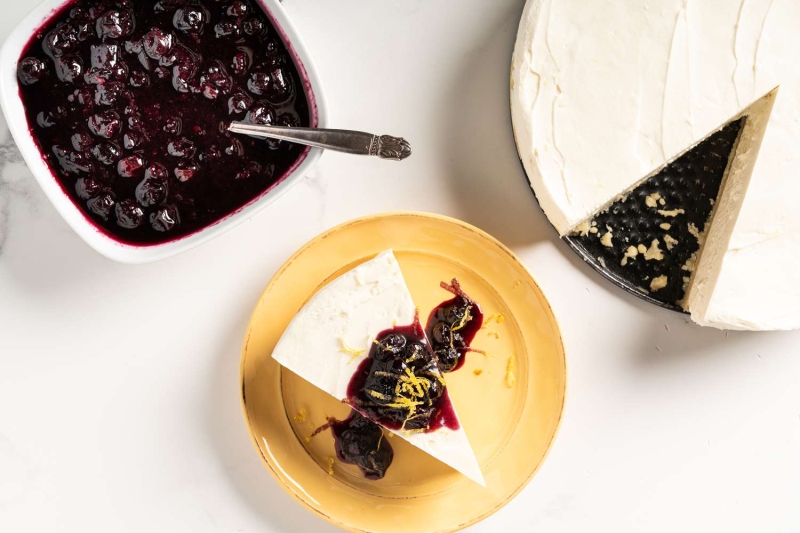
How to Store
No-bake cheesecake will keep in the fridge for at least three days. Store any leftovers tightly wrapped.
Tips
- With the increasing popularity of the keto diet, there are now several keto-friendly sugar substitutes available on the marketplace. Stevia, sucralose, erythritol, monk fruit sweetener, and yacon syrup are all low-carb sweeteners that can be used in keto recipes.
- For recipes such as this, it is recommended to use a product that can be measured 1:1 for traditional granulated sugar. This keto cheesecake works well with xylitol. Xylitol is a sugar alcohol that is as sweet as regular sugar. It is extracted from the bark of birch trees and can be scooped and measured just as you would traditional granulated sugar when baking. Because the carbs in xylitol don’t raise blood sugar or insulin levels the same way as sugar, they don’t count towards the total amount of net carbs in a recipe.
| Nutrition Facts | |
|---|---|
| Servings: 12 | |
| Amount per serving | |
| Calories | 469 |
| % Daily Value* | |
| Total Fat 44g | 56% |
| Saturated Fat 21g | 106% |
| Cholesterol 101mg | 34% |
| Sodium 306mg | 13% |
| Total Carbohydrate 13g | 5% |
| Dietary Fiber 3g | 12% |
| Total Sugars 6g | |
| Protein 9g | |
| Vitamin C 8mg | 41% |
| Calcium 159mg | 12% |
| Iron 1mg | 5% |
| Potassium 295mg | 6% |
| *The % Daily Value (DV) tells you how much a nutrient in a food serving contributes to a daily diet. 2,000 calories a day is used for general nutrition advice. | |
